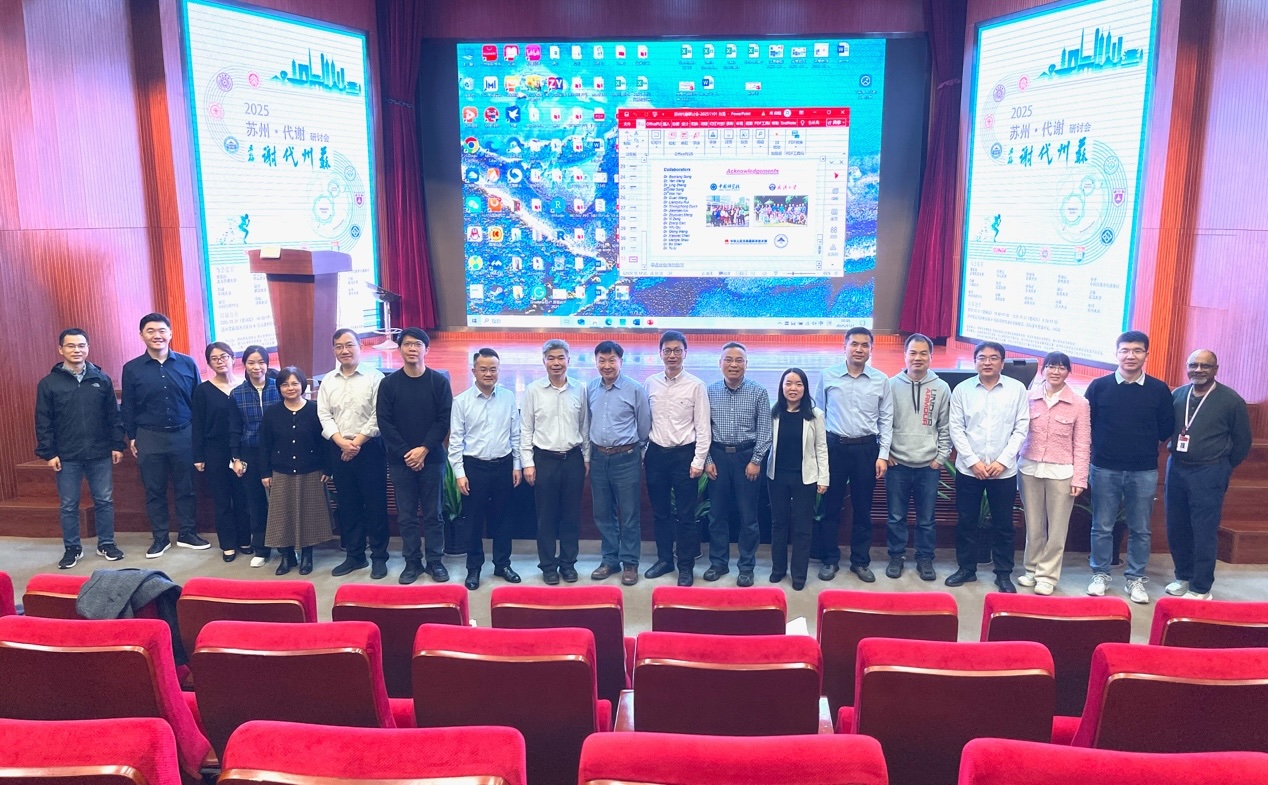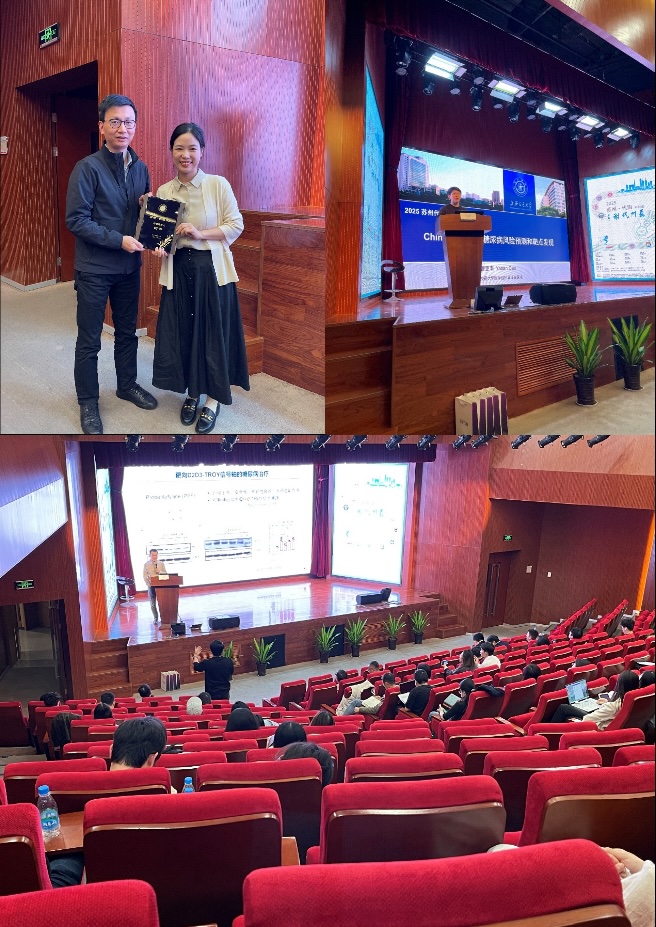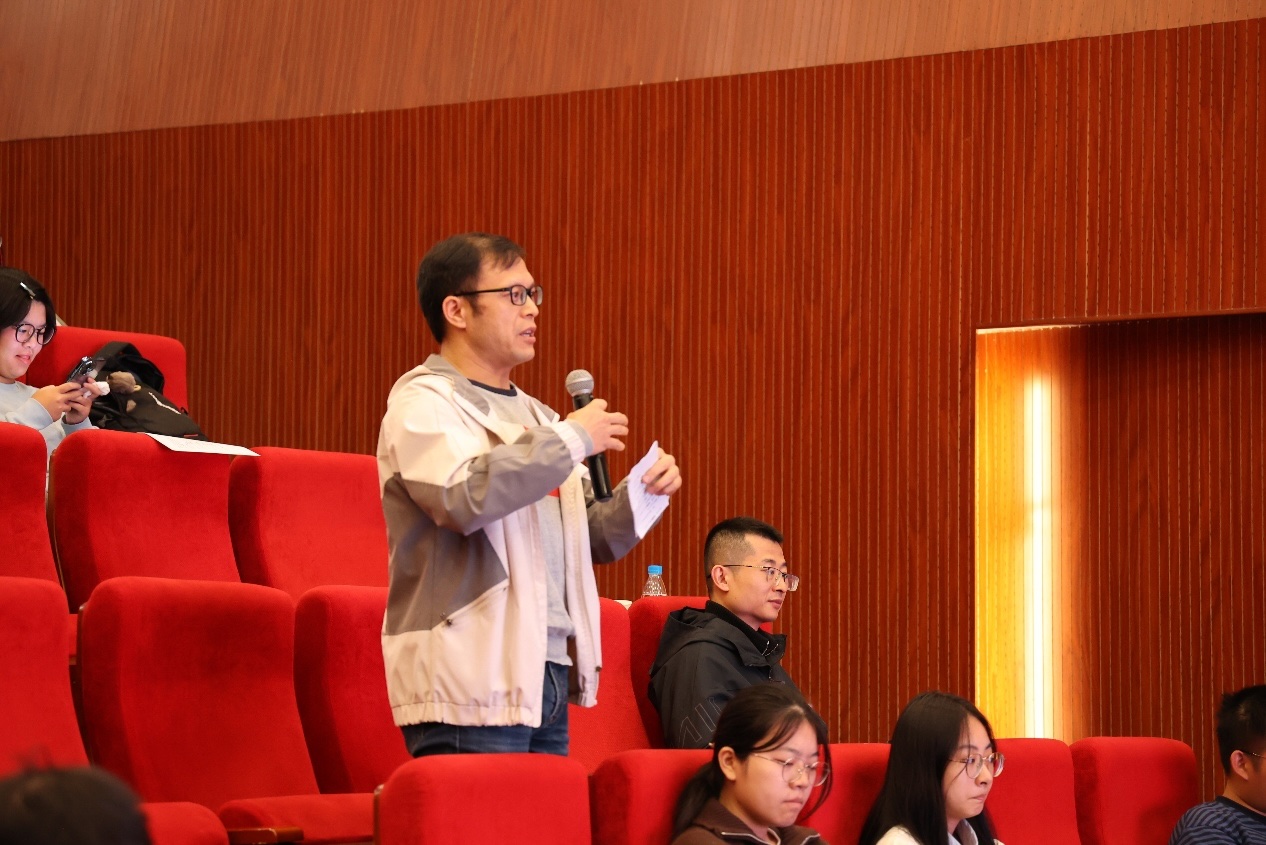11 Nov 2025
The 2025 "Suzhou·Metabolism" Symposium was successfully held at the International Academic Exchange Center in Xi'an Jiaotong-Liverpool University from October 31 to November 1, 2025. Focusing on key research areas including metabolism and cancer, immunity, and interventions for metabolic diseases, the symposium conducted in-depth discussions on the latest progress and technological breakthroughs in metabolic research, presenting a high-level academic feast.

The symposium was co-hosted by the School of Science of Xi'an Jiaotong-Liverpool University, Suzhou Society for Biology, School of Life Sciences of Soochow University Medical College, and Suzhou Association for Science and Technology. It was co-organized by units including Suzhou Municipal Key Lab in Metabolic Syndrome and Drug Design, Suzhou Municipal Key Lab in Systems Biomedicine, Metabolic Biology Branch of the Chinese Society of Biophysics, and Enzymology Professional Committee of the Chinese Society of Biochemistry and Molecular Biology. Additionally, it received strong support from enterprises such as SCIEX, Shanghai Difa Instruments Co., Ltd., Anshanda Life Sciences Co., Ltd., Fubai'ao (Suzhou) Biomedical Technology Co., Ltd., and Shanghai Mingrui Biotechnology Co., Ltd. More than 170 experts, scholars, and researchers from universities, research institutes, and enterprises attended the seminar, which was hosted by Professor Su Xiong—Chairman of Suzhou Society for Biochemistry and Molecular Biology and Vice Dean of the School of Life Sciences of Soochow University School of Medicine.
Focusing on cutting-edge topics of metabolic regulation and disease intervention, the symposium featured a compact yet substantial two-day academic agenda. Experts shared the latest scientific research progress and technological breakthroughs in multiple hot research areas, including gut metabolism, glucose and lipid abnormalities, fatty liver disease, organelle crosstalk, metabolic imaging, immunometabolism, and ferroptosis, presenting a high-level academic feast.
Specific Academic Report Content and Discussion Highlights:
In the afternoon of October 31, the symposium officially started. In the first report, Prof. Cen Xie from the Institute of Materia Medica, Chinese Academy of Sciences focused on the mechanism of intestinal homeostasis imbalance and intervention strategies, revealing the key role of intestinal flora in metabolic diseases and potential intervention approaches. Prof. Sifan Chen from Sun Yat-sen University introduced the novel mechanism by which Gal-3 regulates diabetic microangiogenesis through phase separation. Prof. Yanan Cao from Shanghai Jiao Tong University, based on ChinaMAP big data, outlined the broad prospects for risk prediction of type 2 diabetes and the discovery of new targets. Subsequently, Prof. Ke Zhu from Soochow University delved into the mechanism of D2D3-induced diabetes and targeted intervention strategies from the perspective of the pathogenic mechanism of circulating factors. Prof. Yan Wang systematically explained the genetic and molecular basis of dyslipidemia. At the end of this session, Dr. Jingjing Fang from SCIEX demonstrated how cutting-edge mass spectrometry technology reshapes the research boundaries of metabolomics.

In the morning Session of November 1st, Prof. Feng Liu from the Second Xiangya Hospital of Central South University discussed a new mechanism of metabolic imbalance linking cGAS and hypoxia in adipose tissue. Prof. Yong Liu from Wuhan University conducted an in-depth analysis of the key role of endoplasmic reticulum stress in the occurrence and development of fatty liver disease. Prof. Zhongzhou Yang from Nanjing University shared the latest insights into organelle biology and tissue/organ development. Prof. Yu Li from the Shanghai Institute of Nutrition and Health, Chinese Academy of Sciences systematically explained the molecular mechanism of FGF21 as a therapeutic target for MASH. Prof. Haibo Jiang from The University of Hong Kong introduced the innovative development and application practice of the NanoSIMS imaging method.
In the afternoon Session, Prof. Xiaowei Chen from Peking University reported a breakthrough in tracking manganese ion signaling pathways in metabolic regulation. Prof. Peishan Li from Soochow University expounded on the new discovery that lipid metabolic reprogramming drives the effector function of neutrophils, connecting metabolism and immune regulation. Subsequently, Prof. Qiang Li from Peking University introduced the potential of a new type of safe insulin sensitizer in intervening metabolic aging. Prof. Li Xu from Tsinghua University conducted an in-depth analysis of the important role of polyamine metabolism in the pathological process of fatty liver. Prof. Xin Yang from Soochow University revealed a new mechanism of ferroptosis driven by phosphatidic acid peroxidation, and discussed its potential to transform from a tumor suppressor phenomenon to a therapeutic strategy.

During the seminar and exchange session, experts and scholars conducted multi-angle and in-depth discussions and explorations around the cutting-edge academic achievements presented in the reports, creating an active atmosphere for ideological exchange on site.
To facilitate free communication among scholars, teachers, students and volunteers from the School of Science at Xi'an Jiaotong-Liverpool University carefully prepared refreshments and drinks during the coffee breaks, adding a warm and relaxed atmosphere for communication to the rigorous academic conference.

Closing Remarks
The 2025 "Suzhou·Metabolism" Symposium was marked by a warm atmosphere and a strong academic vibe. Experts, scholars, and young researchers from across China conducted in-depth, multi-dimensional, and diverse exchanges and discussions on the latest progress in the field of metabolic research.
The academic content of this symposium covered multiple directions, including gut metabolism, diabetes mechanisms, fatty liver disease, organelle biology, and nano-imaging technology. Ranging from basic research to clinical translation, and from theoretical exploration to application innovation, it comprehensively demonstrated the broad prospects of metabolic science in the field of life and health. During the symposium, scholars engaged in intense ideological exchanges and the integration of viewpoints, with in-depth communications and lively discussions. Through rich thematic reports and interactive seminars, participants not only broadened their scientific research horizons but also deepened their understanding of cutting-edge issues in metabolic biology.
This symposium built a high-level communication and cooperation platform for researchers with different disciplinary backgrounds, promoted connections and interactions between research institutions and the industry, and further strengthened the joint exploration of common topics by the scientific research and industrial sectors to advance integrated development. It has laid a solid foundation for future cooperative research and achievement transformation in the metabolic field.
At the closing session, Prof. Xiong Su, Director of the Suzhou Society for Biology, delivered a concluding speech. On behalf of all participants, Prof. Su expressed sincere gratitude to the organizing and co-organizing units of the seminar. He specially thanked the School of Science at Xi'an Jiaotong-Liverpool University, Professor John Moraros (Dean of the School of Science), and Professor Meng Jia (Head of the Department of Biological Sciences and Bioinformatics) for their strong support to the conference. He also acknowledged the hard work of Dr. Dai Weiwei from the School of Science as the overall coordinator of the conference, as well as the thoughtful services provided by the student volunteer team. He stated that the successful holding of this conference is the result of joint efforts from multiple parties, and he looks forward to the "Suzhou·Metabolism" Seminar continuing to play a bridging role in promoting academic exchange and innovative development in the field.
Drafted by: Zhang Zining, Yu Yiqi, Cheng Junhan
Photography: Liu Huiran、Yang runyu
Proofread by: John Moraros, Dai Weiwei
11 Nov 2025








